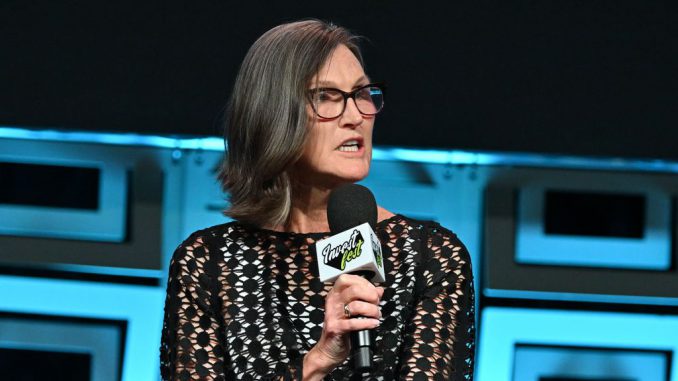
Ark Invest founder Cathie Wood took aim at the index-based investment strategy and explained its shortcomings, taking Alphabet, Inc. (NASDAQ:GOOGL) (NASDAQ:GOOG) as an example to make her case.
Alphabet At Risk: Despite large-language models poised to disrupt Alphabet’s Google, the parent company’s stock is one of the top holdings in most growth portfolios, Wood said in a post on X, formerly Twitter. “Analysts and portfolio managers feel ‘safe’ because $GOOG is one of the top weights in the benchmarks against which they are measured,” she said.
Portfolio managers also believe that Alphabet has the best AI expertise in the world, Wood said. The fund manager said the deduction could be true due to the company’s DeepMind acquisition. The problem, however, is that LLMs like GPT4 are going to “disintermediate” perhaps destroy Google’s search, which accounts for the bulk of the company’s business, she said.

Gone Too Far? Most large-cap growth managers “hug” their benchmarks because of the way they are measured, Wood said. “Their portfolios look quite similar, with Google near the top,” she said. “The impact of “quantitative research” – putting indexes at the center of investment the process – has gone too far,” she added.
“The shift toward indexed-based investing in the last 30 years – even more so since 2000 as investors ran away from risk after the tech and telecom bust and the Great Financial Crisis – has created the most massive misallocation of capital in history,” Wood said.
Wood expressed a similar opinion in mid-2022 when she seconded Tesla CEO Elon Musk’s criticism of passive investment and funds. She noted that passive funds are shorting disruptive innovation at a time when the global economy is undergoing the largest technological transformation in history.
“In my view, history will deem the accelerated shift toward passive funds during the last 20 years as a massive misallocation of capital,” she had said then.
The Invesco QQQ Trust (NASDAQ:QQQ), an exchange-traded fund that tracks the Nasdaq 100 Index, has gained 42.72% so far this year, according to data available in Zenger News Pro data. Ark’s specialized ETF, the Ark Innovation ETF (NYSE:ARKK) has added a more modest 28.24% for the same period.

The comparison shows that the passive fund outperformed the actively managed ETF. Wood could have a point there, though. If disruptive innovations push a traditional player to the brink, then passive investment could leave one’s investments at peril.
Produced in association with Benzinga
